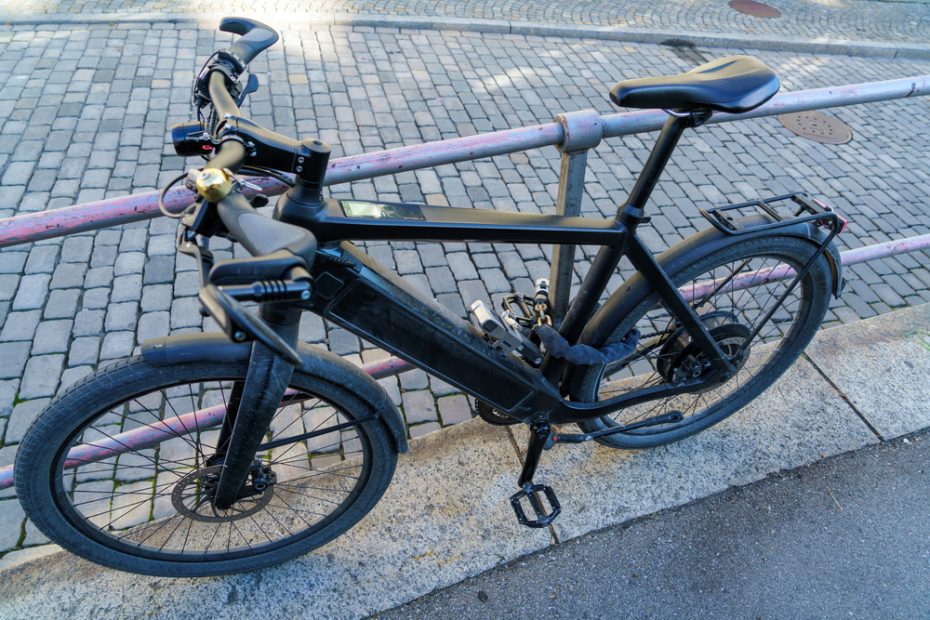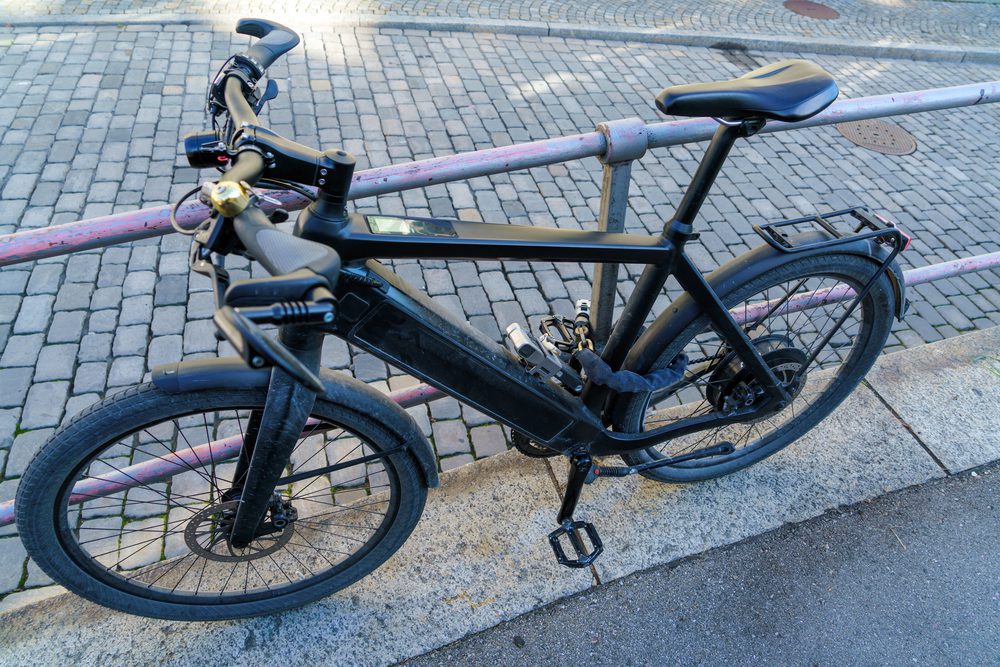Do electric bikes need an MOT?
With the increasing popularity of electric bikes, also known as e-bikes, you might be wondering whether these vehicles require an MOT (Ministry of Transport) test. The answer to this question is both simple and complex, as it depends on various factors such as the power output of the e-bike, its top speed, and where you intend to ride it.
The legal definition of an electric bike
Firstly, it’s important to understand the legal definition of an electric bike in the UK. According to the Electrically Assisted Pedal Cycles (EAPCs) Regulations 1983, an e-bike is considered to be a bicycle if it meets certain criteria:
- The bike must have pedals that can propel it.
- The electric motor should have a maximum power output of 250 watts.
- The motor should only assist the rider when they are pedaling.
- The motor assistance should cut off once the bike reaches a speed of 15.5 mph (25 km/h).
If your electric bike meets these criteria, it is classified as a normal bicycle, and therefore, does not require an MOT.
Electric bikes with higher power outputs
However, if your electric bike exceeds the specified power output of 250 watts or has a top speed higher than 15.5 mph, it is considered a higher-powered e-bike and falls into a different category. These e-bikes may require an MOT test, tax, insurance, and a valid driving license to operate legally on public roads in the UK.
It’s worth noting that even if your e-bike falls into this category and requires an MOT, the process and requirements can differ depending on your location. It’s always best to consult with relevant local authorities or a specialist electric bike retailer to ensure compliance with the specific regulations in your area.
Where can you ride your electric bike?
The regulations regarding where you can ride your electric bike also play a role in determining whether an MOT is necessary. If you plan to use your e-bike solely on private property, such as your own land, an MOT is generally not required. However, if you intend to ride it on public roads, cycle paths, or bridleways, you must ensure your e-bike complies with the appropriate legislation.
Using e-bikes on public roads and cycle paths
If your e-bike meets the legal definition of an electric bike as mentioned earlier, you can ride it on public roads and cycle paths. You must follow the same rules as traditional bicycles, including observing speed limits, wearing appropriate safety gear, and obeying traffic laws. No MOT test is necessary, but it’s crucial to keep your e-bike well-maintained and in safe working condition.
Riding e-bikes on bridleways and public footpaths
It’s important to note that electric bikes are not currently permitted on bridleways and public footpaths unless they are specifically designated as shared-use paths or have been granted an exemption by local authorities. In such cases, the e-bike would require an MOT, insurance, and registration to be legally ridden on these paths.
As an electric bike owner, it is your responsibility to ensure you understand and follow the regulations governing the use of e-bikes in your specific area.
In summary, the need for an MOT for electric bikes depends on their power output, top speed, and where you intend to ride them. If your e-bike meets the legal definition of an electric bike, including the 250-watt power limit and the 15.5 mph speed restriction, it does not require an MOT. However, if your e-bike exceeds these limits or you intend to ride it in specific areas, an MOT may be necessary. Consulting local authorities or seeking advice from a knowledgeable electric bike retailer will help you navigate the regulations and ensure compliance.
Do Electric Bikes Need Road Tax?
One of the advantages of owning an electric bike in the UK is that you do not need to pay road tax, also known as Vehicle Excise Duty (VED).
What is Road Tax?
Road tax is a tax imposed on vehicles that are used or kept on public roads. It is based on factors such as the vehicle’s emissions and engine size. However, electric bikes are exempt from road tax as they are classified as electrically-assisted pedal cycles (EAPCs) by the UK government.
Electric Bike Classification
In the UK, electric bikes are classified as EAPCs if they meet certain criteria:
- The motor has a maximum power output of 250 watts.
- The motor provides assistance only when the rider is pedaling.
- The bike’s top speed is limited to 15.5 mph (25 km/h).
- The bike must have pedals that can be used to propel it.
As long as your electric bike meets these requirements, you are not required to pay road tax.
Other Costs
While electric bikes do not require road tax, there may be other costs associated with owning one. These can include:
- Initial purchase price
- Maintenance and servicing
- Insurance (though this is generally not mandatory)
- Battery replacement (if needed)
- Charging costs
Overall, electric bikes offer a cost-effective and environmentally-friendly mode of transportation without the burden of road tax.
“Electric bikes provide a great alternative to traditional vehicles, and the fact that they are exempt from road tax makes them even more appealing.” – Cycling enthusiast
| Cost | Electric Bike | Car |
|---|---|---|
| Initial Purchase Price | £1,000 – £3,000 | £10,000 – £30,000+ |
| Insurance | Optional | Mandatory |
| Road Tax | Exempt | Varies based on emissions |
In conclusion, electric bikes do not require road tax in the UK, making them an affordable option for commuting and eco-friendly transportation.
Why is electric bike insurance so expensive?
Rising popularity and theft rates
Electric bikes have gained immense popularity in recent years, thanks to their convenience, eco-friendliness, and cost-saving benefits. However, this surge in popularity has also led to an increase in electric bike theft rates. Insurance providers often consider the risk of theft when determining premiums, which can contribute to higher insurance costs.
High repair costs
Another factor that contributes to the expense of electric bike insurance is the high cost of repairs. Electric bikes have complex electrical and mechanical components that can be costly to replace or repair in case of damage. Insurance companies take this into account when setting premiums, as they need to cover the potential expenses involved in repairing or replacing these parts.
Limited market competition
Compared to traditional bicycles, the market for electric bike insurance is relatively new and less established. This limited competition among insurance providers can result in higher prices due to a lack of options. As the market evolves and more insurers enter the space, it’s likely that the prices will become more competitive and affordable.
Risk perception
Insurance companies assess risk based on various factors, including the type of vehicle being insured. Electric bikes may be perceived as riskier to insure compared to regular bicycles due to their higher speeds and potential for accidents. This perception can influence insurance premiums, making them more expensive for electric bike owners.
No claims history
Since electric bikes are still relatively new, many riders do not have an extensive claims history. Without a proven track record of fewer claims or low-risk behavior, insurance companies may consider electric bike owners as higher-risk customers, resulting in higher premiums.
Insurance options
Despite the higher costs associated with electric bike insurance, it is still essential to protect your investment. Consider exploring different insurance options and comparing quotes from various providers to find the most suitable coverage at a competitive price. Some insurers offer specific policies tailored for electric bikes, which may provide more comprehensive coverage.
Remember, having insurance offers peace of mind, protecting your electric bike against theft, damage, and liability.
In conclusion, electric bike insurance tends to be more expensive due to rising theft rates, high repair costs, limited market competition, perceived risk, and lack of claims history. However, as the market matures and more insurers enter the industry, prices may become more affordable. It is crucial to actively research and compare insurance options to find the best coverage for your electric bike at a competitive price.



